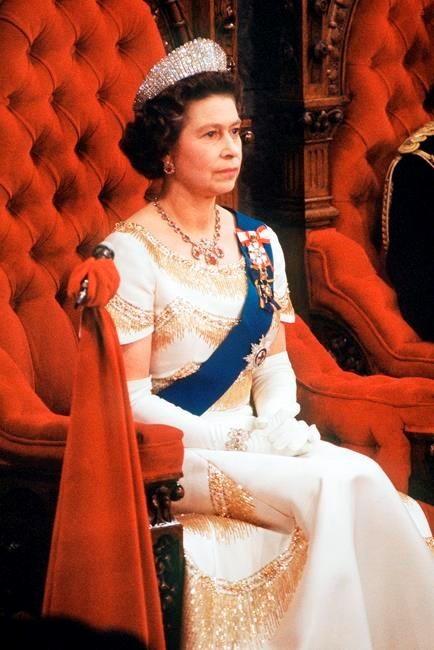TORONTO — Another royal is soon set to grace the grounds of Queen's Park.
A statue of the late Queen Elizabeth is expected to be raised on the grounds of Ontario's legislature by this fall, the government said, ending a years-long delay and reigniting a conversation about the commemoration of historical figures.
The statue was conceived as a privately-backed project to be unveiled in 2017, marking the queen's Sapphire Jubilee and the 150th anniversary of Confederation. But when a local heritage trust's fundraising efforts for the project faltered, the sculpture artist and the foundry were left unpaid.
Legislative Affairs Minister Paul Calandra said he learned about the stalled project last year, before the queen's death in September, and had the government allocate $1.5 million to get it over the finish line.
"We made the decision to step in and we're just quite excited to bring it to completion," he said.
Contractors broke ground on the foundation in late July and Calandra is hopeful the bronze statue will take its place by this fall.
It depicts the queen in 1977 on her throne in the Senate, where she delivered a speech exalting Canadian unity against the backdrop of an ascendant Quebec separatist movement.
Calandra, who also serves as the long-term care minister, said the statue marks an opportunity to honour the queen and her 70-year reign.
"We always contemplated recognizing and celebrating her majesty's service, not only as the longest-serving head of state, but everything that she in her time represented to Canada," he said.
But opinions vary on what – and who – the queen represents.
For Ontario NDP MPP Sol Mamakwa, a member of the Kingfisher Lake First Nation, the monarch stands as an enduring symbol of colonization and the failure of the Crown to uphold its treaty obligations to Indigenous Peoples.
"There's a housing crisis, a mental health crisis, a water crisis. That's what it represents," he said, speaking to conditions on First Nation reserves across the country. "The Queen represents – to me, anyways – colonialism, oppression."
Mamakwa said the government should have held consultations with Indigenous Peoples before going ahead with a plan to install a statue of the queen.
The statue's planned unveiling, he noted, comes at a time when the government has yet to follow through on the Truth and Reconciliation Commission's 2015 call to action to install a provincial residential schools monument to honour survivors and children who were lost to their families and communities as a result of the residential school system.
The grounds of Queen's Park feature a number of statues and monuments, including a statue of Queen Victoria.
The decision to approve the location of the Queen Elizabeth statue on the legislature grounds was made by the legislature's Board of Internal Economy, which includes Calandra, NDP MPP John Vanthof and speaker Ted Arnott.
The sculpture artist Ruth Abernethy called the queen a "very interesting woman" who was "remarkable at her job," while recognizing the way the statue has renewed a conversation about reconciliation.
"There are all kinds of ramifications and there are all kinds of portraits I think should still be done and I know that they are being done," Abernethy said. "And I know a lot of hard questions are being asked and answered of everyone and that's a brilliant part of the process."
Meanwhile, a decision has still not been made about what to do with a John A. Macdonald statue on the legislature grounds that's been boarded up for three years after being the target of repeated vandalism. The issue has been referred to a legislative standing committee but hearing dates have not been set.
Calandra said he supported a monument to residential school survivors and victims at Queen's Park and expected consultations with Indigenous communities would form part of the standing committee's work.
He said a statue of the queen could celebrate her legacy while also initiating a conversation about the role of the Crown in Canada.
"Not only can we do both, but we should do both," he said. "The problem with us right now in this country is we're so afraid to do it, whether it's the good or the bad parts of our history and what has made us who we are."
This report by The Canadian Press was first published Aug. 2, 2023.
Jordan Omstead, The Canadian Press

